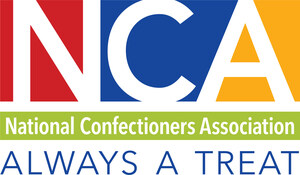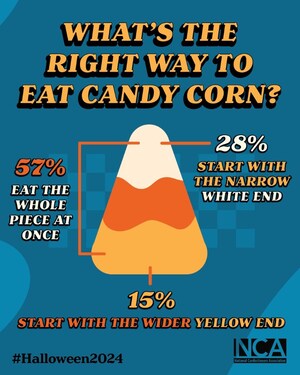WASHINGTON, April 8, 2024 /PRNewswire/ -- The conversation around state-level proposals that seek to ban certain FDA-approved food additives has been filled with myths pushed by unqualified voices and lacking facts presented by those with scientific expertise in the fields of food safety and toxicology. This prompts the question: What are the qualified experts saying?
"Consumers need to know that these very important food safety decisions are based in science and driven by those with the appropriate knowledge base and requisite training," John Downs, NCA's president and CEO, said. "It's time for our nation's food safety experts to flex their expertise and drive the conversation, because maintaining FDA's role as the ultimate authority and regulator in ensuring food safety is critical for our country."
What follows are quotes from toxicologists and other leading experts, including regulatory agencies:
James Coughlin, PhD, CFS and Craig Llewellyn, PhD: "Numerous reports have included reference to the potential banning of the food additives in other countries, insinuating that the U.S. lags in safeguarding consumers. These allegations, however, stem from a fundamental misunderstanding of the science of toxicology, the linchpin of food additive safety, and the meticulous regulatory oversight by the U.S. Food and Drug Administration." March 21, 2024
U.S. Food and Drug Administration: "Reading or hearing about chemicals in food, when combined with words like 'toxic,' 'extremely dangerous' and 'cancer-causing' may be scary, especially if you aren't getting all the facts." April 2, 2024
Health Canada: "Health Canada has reviewed the relevant scientific information on reported linkages between certain synthetic food colours and neurobehavioural effects in children and has found that the presented evidence is insufficient to demonstrate a causal relationship. Health Canada also found no conclusive scientific evidence that titanium dioxide is a concern for human health when used as a food additive." February 16, 2024
Institute of Food Technologists Chief Science and Technology Officer Bryan Hitchcock: "Food additives not only help improve shelf life and reduce microbiological growth but help ensure a safe and affordable food supply while also reducing food loss and waste." March 28, 2024
University of Rhode Island Professor of Nutrition Dr. Kathleen Melanson: "Consumers do not need to be paranoid, or panic stricken about these additives. An occasional treat of a food containing them should not pose a risk." November 1, 2023
"We are in firm agreement that science-based evaluation of food additives is needed – and we follow and will continue to follow regulatory guidance from the authorities in this space, because consumer safety is our chief responsibility and priority," Downs said. "Usurping FDA's authority does nothing but create a state-by-state patchwork of inconsistent state requirements that increase food costs, create confusion around food safety, and erode consumer confidence in our food supply."
More states are walking away from food additives bans than are adopting them. Following California's adoption of a food additive ban in the fall of 2023, New York, Pennsylvania, and Illinois are among a handful of states currently considering copycat proposals. Indiana, Maryland, South Dakota, Washington, and West Virginia have rejected similar bills, because the proposals lack scientific basis. In the same vein, Kentucky legislators recently passed a resolution acknowledging that food safety decisions should be based in fact and driven by those with regulatory expertise.
ADDITIONAL RESOURCES:
Institute of Food Technologists Food Additives Toolkit
Facts About Titanium Dioxide
Myths vs. Facts: Food Additives
Red Dye 3 & Titanium Dioxide Fact Sheet
Media Contact: [email protected]
SOURCE National Confectioners Association

WANT YOUR COMPANY'S NEWS FEATURED ON PRNEWSWIRE.COM?
Newsrooms &
Influencers
Digital Media
Outlets
Journalists
Opted In






Share this article